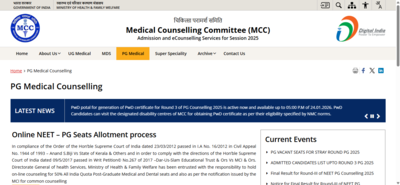From raises to retention: Why Americans are willing to accept lower salaries and pay cuts

Once upon a time, salary topped the priority list of workers. Climbing the pay ladder was synonymous with career success, and higher compensation often defined professional ambition. But now, here we are, in a land of opportunities where salary expectations have taken a backseat. Why? Shrinking job openings, slower hiring, and rising layoffs have fundamentally altered the professional picture, forcing workers to rethink what matters most in their careers.Economic uncertainty has made stability the new currency. Professionals are increasingly prioritising job security, meaningful work, and personal alignment over paychecks. The pursuit of higher salaries is no longer the universal driver it once was. Instead, employees are weighing roles against their long-term well-being, flexibility, and sense of purpose, decisions that reflect both practical necessity and a deeper cultural shift in the way Americans define career success.
The paradox of overqualification
TopResume’s “Overqualified and Undervalued” survey highlights the dilemma faced by today’s workforce. Sixty-five percent of professionals are open to positions below their qualifications, and 26% have already taken such roles. Highly skilled and experienced workers are accepting lower pay than their credentials suggest, navigating a landscape where opportunities are limited and employers are cautious about hiring overqualified talent.Similarly, 16 percent of professionals report having already taken a pay cut to safeguard their employment. While career advancement remains important, a shortage of senior-level opportunities has left many workers, 59 percent, occupying roles for which they are considered overqualified. In response, a significant portion of the workforce is recalibrating expectations: 70 percent are open to accepting lower-level positions, and one in four senior executives would even consider stepping down two or more tiers to maintain job security.
The rise of the “job hugger”
According to the survey, sixty-six percent of American workers now fall into the category of “job huggers,” prioritising security over ambition or higher compensation. Economic volatility, shrinking job postings, and the fear of layoffs have made holding onto a stable position a rational choice. This trend also signals a broader cultural shift: Workers are increasingly valuing flexibility, well-being, and meaningful work alongside, or even above, financial reward.
Why salary takes a backseat
Several key factors are driving this recalibration of salary expectations:
- Economic uncertainty: The risk of unemployment makes stability more valuable than incremental pay increases.
- Alignment with personal goals: Professionals seek roles that fit their lifestyle, interests, and long-term priorities.
- Skill diversification: Lateral moves, contract work, and cross-industry opportunities often require salary compromises but broaden career options.
- Remote and
flexible work : Flexibility can offset lower pay by improving quality of life.
- Mental health considerations: Reduced stress and better work-life balance are increasingly prioritized over higher compensation.
Redefining professional success
In 2025, salary alone no longer defines career achievement. Success is measured by resilience, adaptability, stability, and alignment with personal values. Professionals are willing to recalibrate their expectations, balancing financial reward with security, purpose, and well-being. The evolving labour market demonstrates that in today’s world, navigating uncertainty with foresight and maintaining equilibrium in life and work has become the new measure of professional accomplishment.






